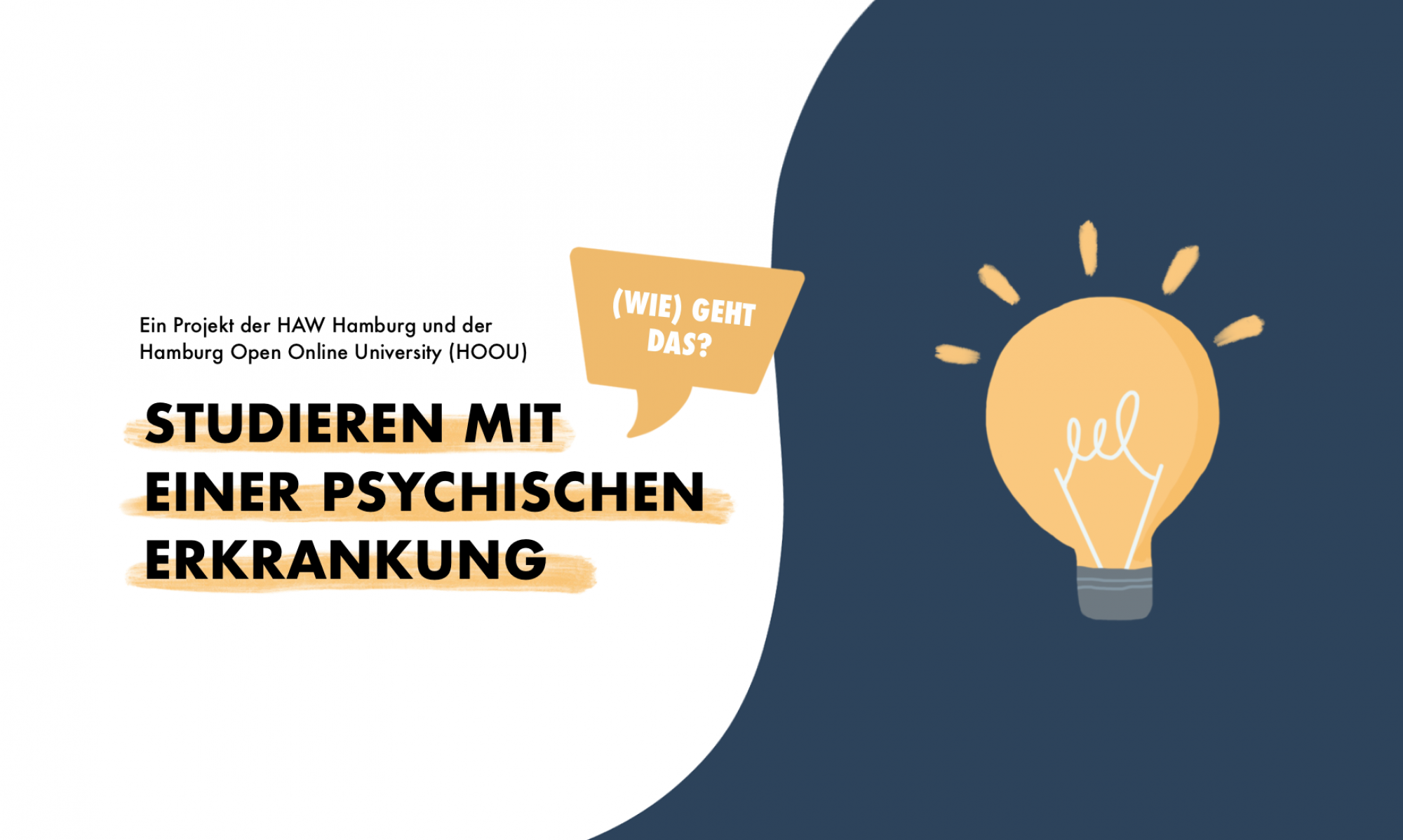
Welcome to the website of HOOU’s project ‘Degree study with a mental health condition: can I do it, and if so, how?’
We want to help reduce the stigma around mental health conditions, raise awareness and point the way to sources of help and support within and beyond higher education institutions. The information on this website is aimed at prospective and current students and staff at higher education institutions.
Facts and figures
The twenty-first Social Survey of the Deutsches Studentenwerk, conducted in 2016, found that 11 % of students across Germany reported a health condition that had an impact on their studies; the figure for Hamburg was 15 %. Of these students, 53 % across Germany and 59 % in Hamburg said they have a mental health condition (see the Deutsches Studentenwerk’s study on the situation of students with disabilities and long-term health conditions, beeinträchtigt studieren – best2, Deutsches Studentenwerk, 2018). An overwhelming 96 % of students with health conditions have one that is not obvious at first sight.
A 2016/17 survey of the situation for students with disabilities or chronic conditions
Students with mental health conditions face various difficulties when engaging in degree-level study. The range of conditions they report is wide, just as it is in society as a whole. The conditions most frequently affecting students are depression and anxiety; others have eating disorders, personality disorders, addictions, obsessive-compulsive disorders, psychosis or other conditions. While autism spectrum conditions (ASC) and AD(H)D are not considered mental health conditions, but rather neurobiological ones, we include them in our resources due to the impact they can have on an individual’s degree study. People with ASC or AD(H)D may refer to themselves as‘neurodiverse’ .
Degree study with a mental health condition
But what it is like to manage a degree course while handling panic attacks or coping with a pervasive lack of energy and ‘get-up-and-go’? There’s no one answer to this question. Each individual student with a mental health condition has their own subjective experience of their symptoms, the difficulties they cause, and the resulting effects on their degree course. Mental health conditions manifest in highly diverse ways; they may be one-off or repeated episodes or involve a continual impact. Many respond well to treatment. People may have ‘good’ periods in which their ability to manage their studies is high, and ‘bad’ periods where they struggle with classes and assessments or may not be able to engage in them at all.
Some people with mental health conditions say that, alongside the difficulties and limitations their condition entails, there are positive effects too – these may include emphatic sensitivity or heightened perception of others’ moods, a more nuanced way of thinking, and greater empathy for the struggles other people face.
